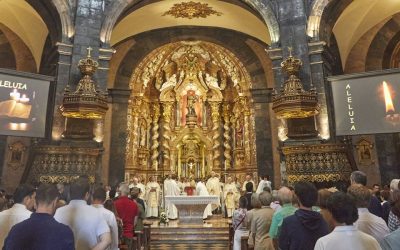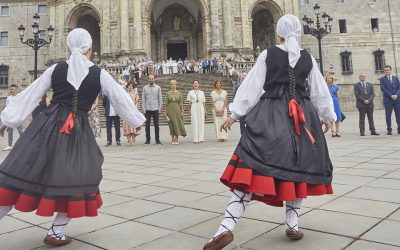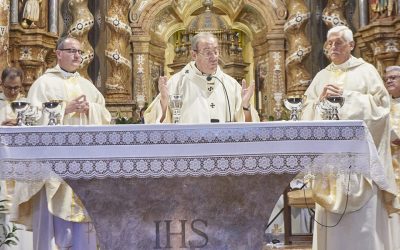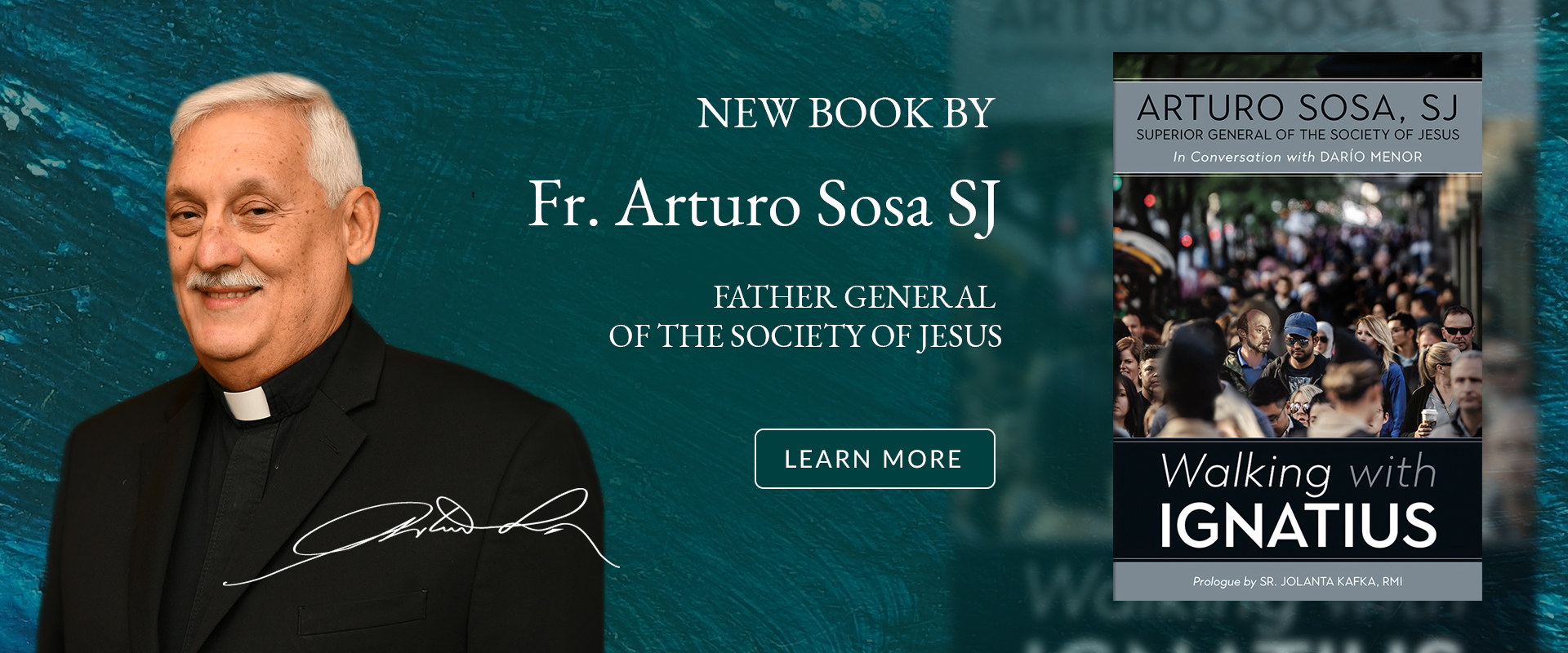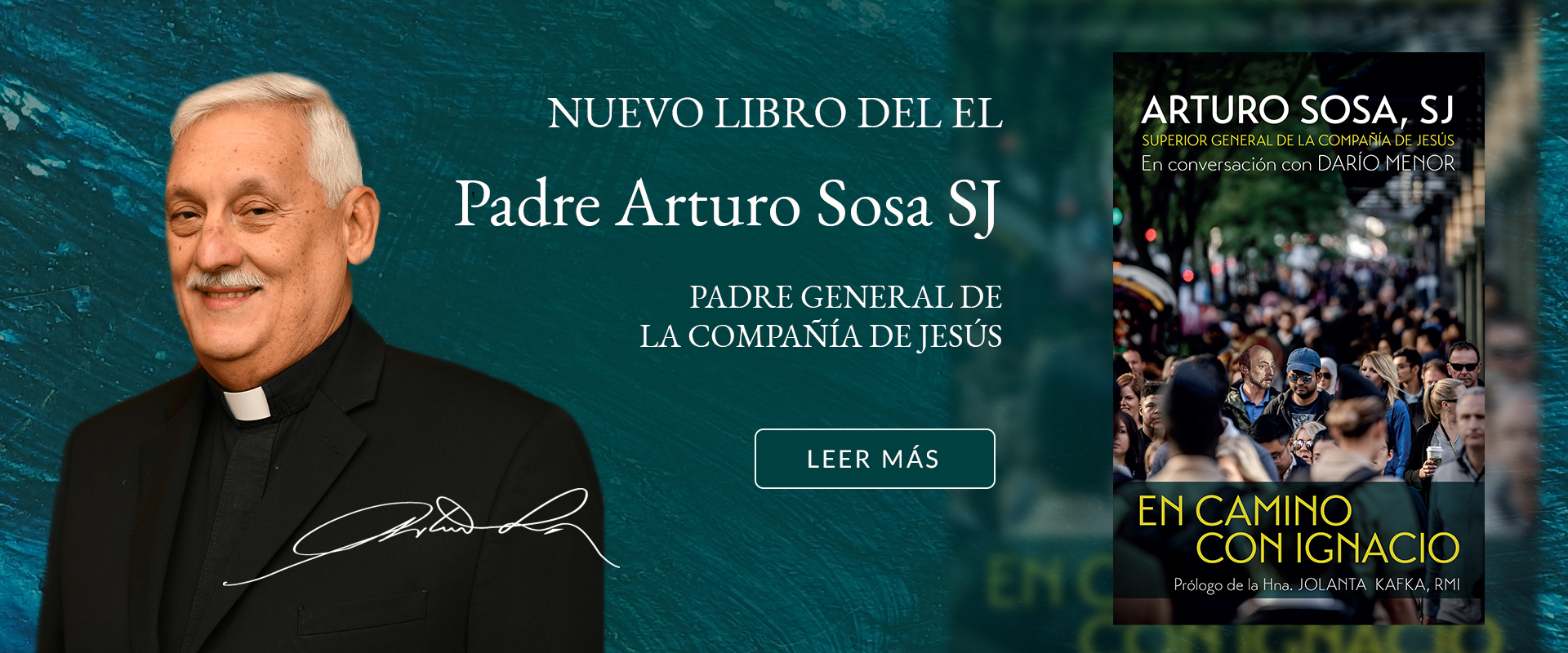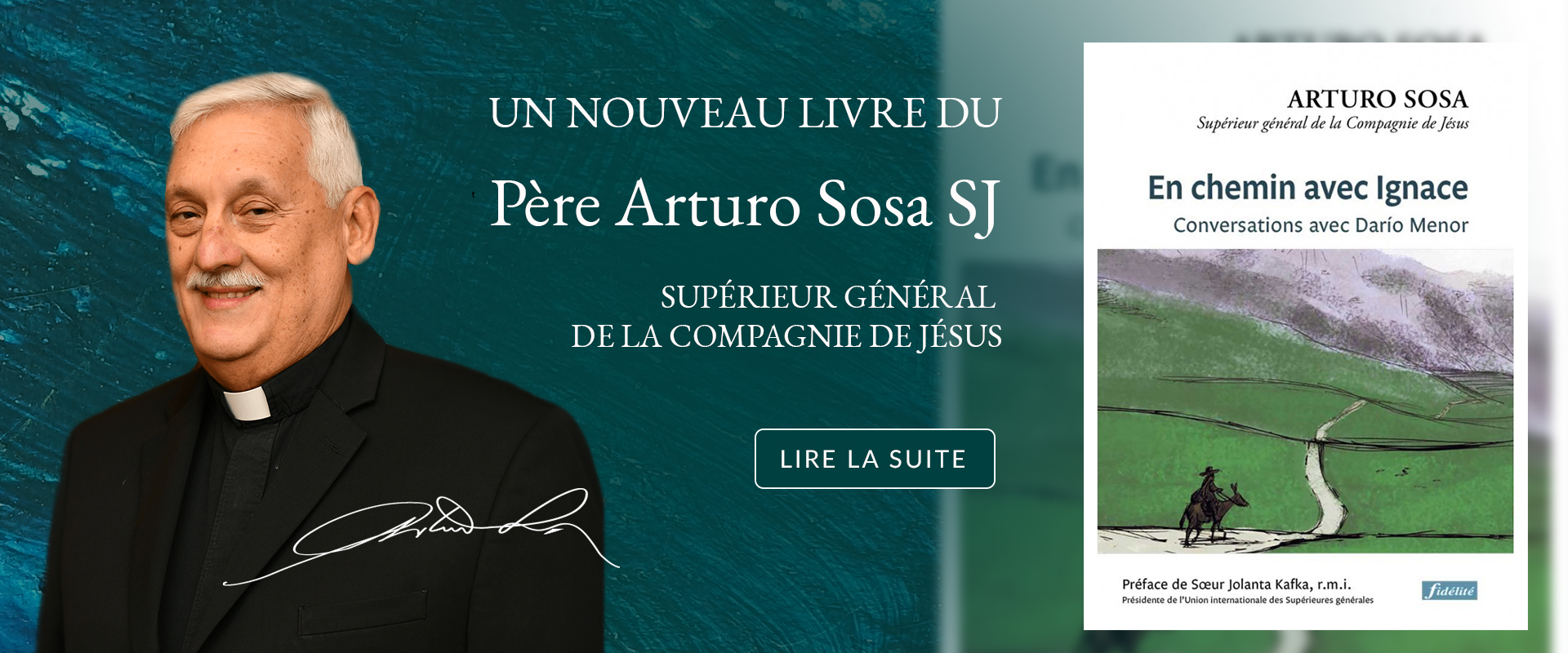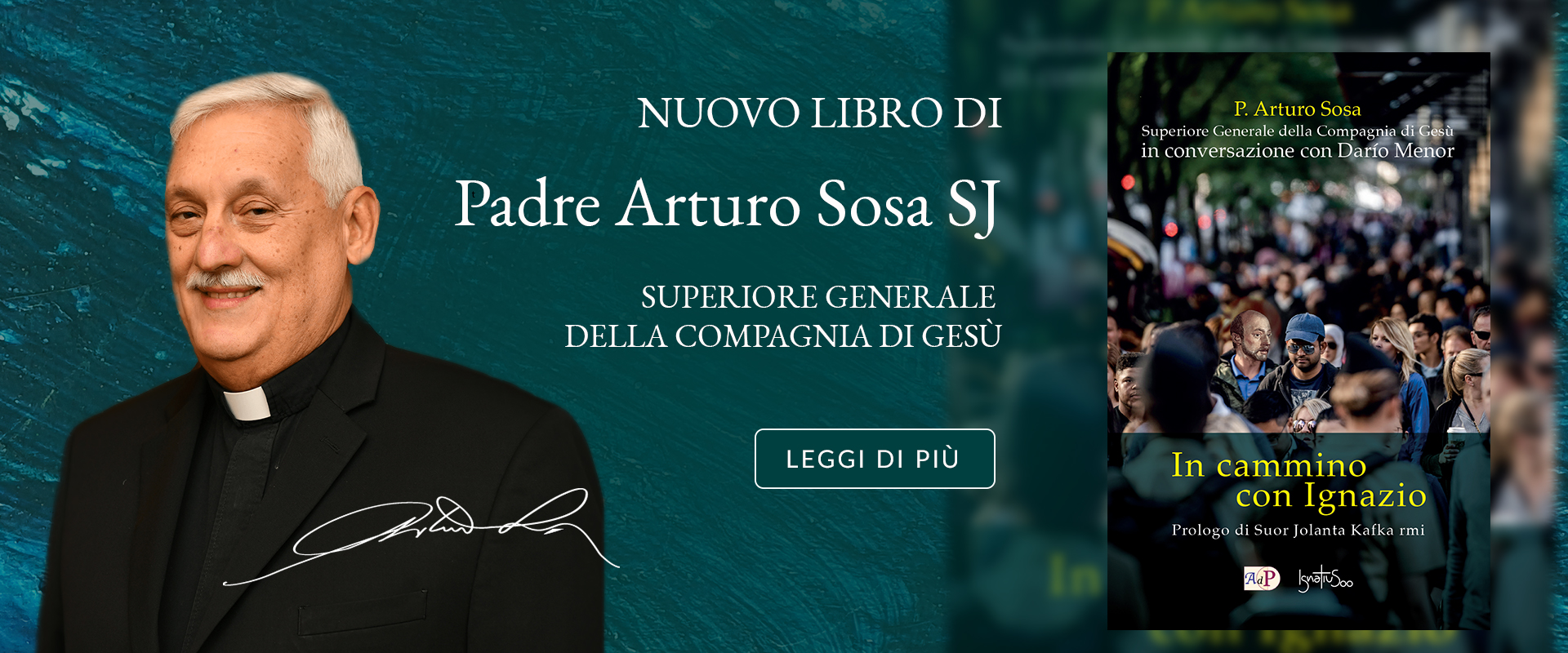During this Ignatian Year, we are publishing a series of homilies that Fr. General Kolvenbach held on the feast days of St. Ignatius. In this homily, Fr. Kolvenbach focuses on the vow at Montmartre on 15 August 1534 and the Body of Christ.
Church of the Gesù, July 31st 1984
On July 30th 1556 Ignatius Loyola asked his secretary Fr Polanco to go to the Vatican to ask the Pope for his blessing. He felt that his life was rapidly drawing to an end. But the doctors who took care of the Superior General of the Society of Jesus did not consider his illness particularly serious and Father Polanco suggested putting off his visit to the Pope to the following day. However the next morning, at the dawn of a very hot day, his companions found Ignatius in the throes of death. Father Polanco hurried to the Vatican to grant his last wish. The Saint died in the small room here – off the present-day Piazza del Gesù – between 6 and 6.30 in the morning, in the presence of Fr Madrid and Fr Frusio.
He had reached the end of his road after heroically trying to have God before his eyes as long as he lived, before every other thing, and then. the form of this his Institute, which is a way to come to him and to achieve this end proposed by God, with all his strength (Formula of the Institute).
Called to succeed him in guiding the Society of Jesus, in the course of this first Eucharist concelebrated with so many of my brothers who represent the entire Society scattered throughout the world on this feast of Saint Ignatius, I would like to meditate briefly on one of the principal stages of the way to come to him Ignatius followed and which the Jesuits, if they want to be faithful to his teaching and spirit, must follow as he did. Because this year the Society of Jesus commemorates the 450th anniversary of the step Ignatius and his first companions took on Montmartre in Paris: on August 15th 1534 Ignatius, together with the Savoyard Pierre Favre, the Spaniards Jaime Lainez, Alfonso Salmeron, Nicola Alonso de Bobadilla, Francisco Xavier and the Portuguese Simon Rodrigues, went to the little church of Montmartre and, with a rather singular ceremony, pronounced their vow to which the Society has always remained faithful to this day.
This is how Simon Rodrigues described the Montmartre liturgy: “Father Favre celebrated Mass. Before giving his companions the divine nourishment, he turned to them, holding the Holy Host in his hand. They, kneeling on the ground, their spirit in God, pronounced their vow one after another (from where they were) in a clear voice so that all might hear; then, together, they received the Eucharist. After this the Father turned towards the altar and, before taking the vivifying bread, pronounced his vow in a clear and distinct voice so that all could hear” (FN III, 24-27); FN I, 20).
Undoubtedly their vow implied the choice of a definite state of life: the priesthood; the choice of a definite way of life: “to preach in poverty”; and a concrete apostolic program: “Jerusalem”, in other words to go in pilgrimage to the Holy City. If, after waiting for a year, this was impossible, they promised to present themselves to the Pope and place themselves at his disposal to be sent wherever the Holy Father considered it most appropriate.
A true, mysterious bond unites the Montmartre vow in front of the Body of Christ – and not during the liturgy of the word or at the moment of the offerings – with the paschal mystery of the Eucharist, the food of life which is Christ. After following a path of penance, conversion and profound spiritual experiences the first companions, “conquered to the service of God through the Spiritual Exercises”, wished to desire nothing other than the desire of the Lord, who said: “I have longed to eat this Passover with you before I suffer” (Lk 22, 15).
The Montmartre eucharistic liturgy must be understood in the light of the movement itself of the Spiritual Exercises which the first companions lived thanks to Master Ignatius’ direction. When, at the end of the election, a companion decided to conform entirely to the form of life chosen by the Word of God, Master Ignatius invited him to contemplate the Eucharist in order to discover in it the Lord’s passion and the desire to become a living offering to the Father and the brethren; a eucharistic passion which was to be the law of his very life, the movement of the gift and abandonment of self.
There is no union with God, no communion with men and women, without the Eucharist which accomplishes the paschal mystery in the heaviness of human life until he should come. The Society would be unfaithful to Montmartre and very sick if the eucharistic hunger, the paschal desire, were no longer felt in the intimacy of that immense activity which it still carries out in the world.
In pronouncing their vow “in front of the Body of Christ” before receiving him in communion, the seven companions clearly stated that they did not intend asking that any of their projects, any of their particular apostolic programs, be blessed and ratified by the Lord. They simply offered themselves totally to the Christ who died and rose again, to be “placed with him”, the Son of the Father who sent him into the world. With this gesture which pledged their entire life they asked for what occurred three years later at La Storta, when Ignatius “while he was praying, felt a profound change in his soul and saw so clearly that God the Father was placing him with Christ his Son that he could no longer doubt in any way that in fact God the Father was placing him with his Son” (Autobiography, 96).
By wishing to receive the Bread of Life over their vow, the companions were asking and committing themselves so that even their best ideas, projects and initiatives might be and always continue to be open-minded, so that the Lord of the vineyard might at any moment change their plans and have them start afresh to his greater glory. While sincerely wishing to be effectively poor and to freely and generously exercise their apostolic ministry, the first companions bore in mind the concrete exigencies of their apostolate, in which the Lord’s desire too was manifest. Though the Holy Land constituted the priority of their apostolic desires, it in no way excluded “every other mission among the faithful and the infidels” according to what the Vicar of Christ would decide.
Faithful to the Montmartre vow, the recent General Congregation stated: “Our life, following Ignatius’ example, is rooted in the experience of God, who through Jesus Christ calls us, gathers us together in unity and sends us on the mission. The Eucharist is the privileged place in which we celebrate this reality. Insofar as he is united to God “to be righteously guided by his divine hand”, a Jesuit is “a man who is sent”. Thus, in all things, he will know how to find God present in this world, where the struggle between good and evil, between faith and incredulity, between the aspiration to justice and peace and growing injustices and divisions is fought” (GC 34, d. 1,11). No radicalization of an apostolic option, even if valid in itself; no stiffening or immobility; no flight from facing reality, the future of the Church and humanity; no foreclosure in front of the future, of the years of the third millennium which await us. This is an extremely exigent commitment. Therefore – faithful to the Montmartre vow – the last General Congregations have insisted on apostolic discernment in order to ensure that the Lord’s Church may have the apostolic dynamism of the Society and its availability to the Spirit, so that the Society does not focus on what is past or be satisfied with the present but becomes a part of the paschal mystery which is constantly being accomplished in the expectation of he who is coming.
The source, the root, the foundation and stimulus of a Jesuit’s commitment in the Church and the world is this consecration in front of the Body of Christ, Christ the Eucharist who gives himself to the companion who gives himself to him. Without the Eucharist even a Jesuit’s most extraordinary activity would be empty banality, with the Eucharist even the most humble life of a Jesuit can become heroic love. Ignatius’ Spiritual Diary makes us see with our own eyes the Saint’s eucharistic experience, his essentially eucharistic asceticism and mysticism centred on Christ’s Sacrifice. The great graces and powerful inspirations almost always came to him during the eucharistic celebration, or referred back to it. On February 23rd 1544 he wrote: “During the celebration I noticed various sentiments in confirmation of what I have said. And while I held the most holy Sacrament in my hands, feeling a powerful inner movement, I felt like saying that I would never leave it for the whole of heaven, or the world, or etc.; and I felt new movements, devotion, spiritual joy. I added that for my part I would do everything that depended on me; and this the other companions too who had adhered wished to bear in mind. During the day, every time I set my mind on remembering Jesus or the thought of him presented itself to me, a certain feeling or seeing with the intellect, constant devotion and confirmation”.
Total commitment in front of the Body and Blood of Christ, a Jesuit’s food and drink, cannot avoid being brotherhood, koinonia: “the sharing of possessions and of life, which has as its centre the Eucharist: the sacrifice and sacrament of the gift of Jesus, who loved his own until the end” (cf. GC 32, d. 2, n. 18). Like the first companions who, renouncing every form of individualism, wanted to be apostolically close, open to one another’s inspirations, with the Spiritual Exercises as their meeting place, with Master Ignatius’ charism as their guide and the Eucharist as the only source of their life of “friends in the Lord”. “Each member of every community of Jesuits always remembers what Saint Ignatius said about love: that it consists in making those whom one loves participate in what one has and what one is” (GC 32, d. 2, n. 18; Spir. Exer. 231), “through prayer, brotherly exchange, the celebration of the Eucharist” (GC 32 d. 4, n. 63) as at Montmartre.
And poverty too, without compromise, without hypocrisy. “To preach in poverty” like and with Christ who was poor, humble and gentle, who stripped himself of everything in the Eucharist, to be for and of everyone, faithful to the Father in full freedom. Faithful to Montmartre, today as yesterday, the Society must not be discouraged or tired of living – often painfully – the tension which preferential but not exclusive love for the poor imposes on it in the name of the Gospel; the tension which, eucharistically, paschal love imposes on it to fight against any kind of poverty, both material and spiritual, so that men and women may not live on bread alone, but on the Bread of Life.
On July 31st 1556 Ignatius died, while his secretary hurried to ask for the blessing of the Vicar of Christ in whose service, again following Jesus’ indication, Ignatius had placed himself and the Society. He died in total abandonment to the Father, having become like and with Christ the Victim, the living Eucharist for the salvation of the world.
This is the Society of Jesus.
Read the other homilies here.


